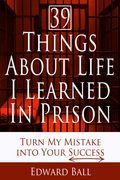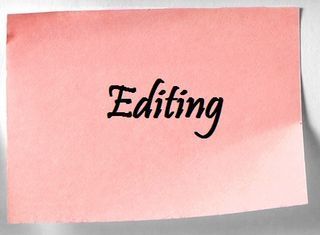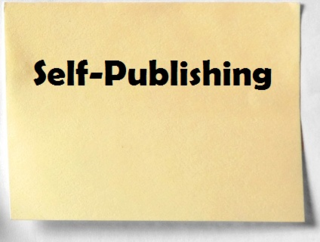Rob Bignell's Blog, page 358
September 28, 2013
Does your book cover design matter for ebooks?
Does book  cover design matter for an ebook?
cover design matter for an ebook?
Absolutely!
Human beings are visual animals. Images at first glance always are more powerful than words. That’s why most businesses use logos. When their name is presented, they typically stylize their lettering so that we associate the shape and color with their products (hence the Golden Arches, McDonald’s stylized M).
Most potential readers of your ebook will first encounter it via an image – the book’s cover – rather than the wording. It may be the thumbnail of your book cover on Amazon.com’s “Customers Who Viewed This Item Also Viewed” or on Goodreads’ “Currently reading.” It may be a thumbnail of your book cover on Nook’s “Top Matches” or of some blog’s listing of a dozen books about a topic. If that thumbnail doesn’t cause them to take a closer look at the accompanying text descriptions of your book, you or farther away from making a sale.
Given this, a cover designed from an online thumbnail needs to be designed differently than a cover for a paperback book one can pull off a bookstore shelf. The ebook cover probably should consist of a single, dominant image rather than an elaborate, detailed illustration. The title (or author’s name if well-recognized) needs to be in larger lettering so it can be read on a thumbnail. Small lettering, such as a promotional blurb, probably should be dispensed with. I say “probably” only because there definitely are exceptions of successful ebooks that didn’t follow these rules. In general, though, think “logo” rather than “bookstore-sold book cover.”
Need an editor? Having your book, business document or academic paper proofread or edited before submitting it can prove invaluable. In an economic climate where you face heavy competition, your writing needs a second eye to give you the edge. I can provide that second eye.
Related articles
 Offer your readers a photo gallery page
Offer your readers a photo gallery page Select different fonts for paperback, ebook
Select different fonts for paperback, ebook
September 27, 2013
Writers can blog about variety of topics
The biggest question facing any writer is what to blog about. You’ve got lots of options:
question facing any writer is what to blog about. You’ve got lots of options:
g Future appearances – Upcoming book signings/readings, guest speaking appearances, and appearances on radio and TV broadcasts all can be promoted on your blog. After the events are held, be sure to blog about them as well, giving pictures from the event if possible.
g Mentions of your book – Anytime your book or yourself appear in a newspaper, magazine, newsletter or blog, write about it. Include links to the articles or reviews. Other bloggers particularly will appreciate the plug and are likely to remember you for your next book.
g Updates on the author’s next book – If a reader likes you enough to follow your blog, they’ll be curious when your next book is coming out. You probably don’t want to give too much away about the book or you run the risk of giving a spoiler. But you can about your progress and maybe some of the research you’re doing.
g Announcements of your other published work – Plug when articles or stories you’ve written have come out in magazines or in online journals.
g Awards received – Should you receive any awards for your writing or if penning nonfiction related to the subject matter you write about, announce them.
g Your thoughts on other books – Focus on books in your genre or on your subject matter. Don’t write a scathing review lest you sound like you’re trying to plug your book.
g Your tips on subject matter – As a published author, you’re now an expert! If you’ve penned fiction, you may focus on the craft of writing. If you’re authored a nonfiction book, share advice about your subject matter; for example, my Hikes with Tykes blog covers gear, medical emergencies, great trails, hiking games and activities, and more, all related to hiking with children.
g Answer readers’ questions – Such questions might include seeking of advice about the subject matter, wondering why certain events occurred in your novel, or inquiries about your background. Be polite and helpful to such readers, even if they’re question shows they’re a jerk.
Need an editor? Having your book, business document or academic paper proofread or edited before submitting it can prove invaluable. In an economic climate where you face heavy competition, your writing needs a second eye to give you the edge. I can provide that second eye.
Related articles
 Ensure your book's website is navigable
Ensure your book's website is navigable How to construct your website's home page
How to construct your website's home page How to write an author's bio
How to write an author's bio Offer readers a sample chapter page on website
Offer readers a sample chapter page on website Which social media is best to promote your book?
Which social media is best to promote your book?
September 26, 2013
Client releases book of lessons learned in prison
An editing  client of mine from this past summer has released his first book, “39 Things about Life I Learned in Prison: Turn My Mistake into Your Success.” Edward Ball went to prison at a young age, so he had no choice but to learn about life on the inside. This book outlines some of the major lessons he learned in prison and uses real life stories to show how he came to learn it. This book is a message of personal development and extracting value from our mistakes. It is available as an ebook in a variety of formats. Those who buy it via Smashwords can get it for 33% off its cover price by entering the coupon code coupon code EK65Z; the coupon expires Oct. 16.
client of mine from this past summer has released his first book, “39 Things about Life I Learned in Prison: Turn My Mistake into Your Success.” Edward Ball went to prison at a young age, so he had no choice but to learn about life on the inside. This book outlines some of the major lessons he learned in prison and uses real life stories to show how he came to learn it. This book is a message of personal development and extracting value from our mistakes. It is available as an ebook in a variety of formats. Those who buy it via Smashwords can get it for 33% off its cover price by entering the coupon code coupon code EK65Z; the coupon expires Oct. 16.
Need an editor? Having your book, business document or academic paper proofread or edited before submitting it can prove invaluable. In an economic climate where you face heavy competition, your writing needs a second eye to give you the edge. I can provide that second eye.
Related articles
 Editing client, Ed Wyns, publishes first novel
Editing client, Ed Wyns, publishes first novel Editing client releases action-adventure novel
Editing client releases action-adventure novel Editing client releases supernatural thriller
Editing client releases supernatural thriller Editor's sixth 'Hittin' the Trail' book released
Editor's sixth 'Hittin' the Trail' book released Improve your writing by dumping fuzzy words
Improve your writing by dumping fuzzy words
September 25, 2013
Get out front of this pair: Forward vs. foreword
Before we get started, let me just preface by saying I see this mistake a lot in manuscripts I edit, though the difference between the two words is quite easy to remember. I suspect that the problem may be some writers don’t realize that the word “foreword” exists.
get started, let me just preface by saying I see this mistake a lot in manuscripts I edit, though the difference between the two words is quite easy to remember. I suspect that the problem may be some writers don’t realize that the word “foreword” exists.
“Foreword” is an introduction to a book, usually written by someone recognizable. To wit, “The famed astronomer wrote the foreword to the book about Mars.” The word is a combination of “fore” (which means “front”) and “word” (a synonym for “text”), indicating that the section readers are about the touch their eyes upon comes “in front of the book’s main text.”
All other meanings and uses of this word are spelled “forward” (which rough means “to move to the front”).
Need an editor? Having your book, business document or academic paper proofread or edited before submitting it can prove invaluable. In an economic climate where you face heavy competition, your writing needs a second eye to give you the edge. I can provide that second eye.
Related articles
 Get it right, all right vs. alright
Get it right, all right vs. alright Getting focused on close up vs. close-up
Getting focused on close up vs. close-up Five style issues to watch for in your story
Five style issues to watch for in your story Tighten writing by cutting begin fallacy
Tighten writing by cutting begin fallacy Avoid card tricks in the dark when writing
Avoid card tricks in the dark when writing
September 24, 2013
Editor’s sixth ‘Hittin’ the Trail’ book released
The sixth ebook  in my Hittin’ the Trail guidebook series – Hittin’ the Trail: Day Hiking Crex Meadows Wildlife Area – went on sale today. The book describes more than two dozen trails in the northwest Wisconsin wildlife area that’s internationally recognized as a major stopover for migrating waterfowl, particularly the sandhill crane. The title is available in Kindle, Nook, iBook, Kobo, Sony Reader, and other formats.
in my Hittin’ the Trail guidebook series – Hittin’ the Trail: Day Hiking Crex Meadows Wildlife Area – went on sale today. The book describes more than two dozen trails in the northwest Wisconsin wildlife area that’s internationally recognized as a major stopover for migrating waterfowl, particularly the sandhill crane. The title is available in Kindle, Nook, iBook, Kobo, Sony Reader, and other formats.
Need an editor? Having your book, business document or academic paper proofread or edited before submitting it can prove invaluable. In an economic climate where you face heavy competition, your writing needs a second eye to give you the edge. I can provide that second eye.
Related articles
 Editor releases fifth 'Hittin' the Trail' book
Editor releases fifth 'Hittin' the Trail' book Check out editor's books at Wisconsin libraries
Check out editor's books at Wisconsin libraries Hiking books now on sale at Annz Books
Hiking books now on sale at Annz Books
September 23, 2013
Editor speaking at Redbery's Authors’ Market
I’ll be reading from one of my books at Redbery's Annual Authors’ Market in Cable, Wis., on Sunday, Sept. 29, from 1 to 3 p.m. Several regional Wisconsin authors will be on hand to meet with fans and readers, including:
reading from one of my books at Redbery's Annual Authors’ Market in Cable, Wis., on Sunday, Sept. 29, from 1 to 3 p.m. Several regional Wisconsin authors will be on hand to meet with fans and readers, including:
g Jim Brakken, “Thor Loken & the Death of Chief Namekagon”
g Cheri Olson, “Surviving the Teen Driving Years”
g Julie Buckles, “Paddling to Winter”
g Anne Miller, “Mashkiki Rapids”
g Rob Bignell (Yours truly!), Headin' to the Cabin
g Jay Thurston, “Following in the Footsteps of Ernest Hemingway”
g Darby Nelson, “For Love of Lakes”
g Gary Nei and Ros Nelson, “Cow in the Road, Bear in the House”
g John Leighton, “Paradise View: Collected Poems”
The event will be held at the Rivers Eatery, 43455 Kavanaugh Road.
Need an editor? Having your book, business document or academic paper proofread or edited before submitting it can prove invaluable. In an economic climate where you face heavy competition, your writing needs a second eye to give you the edge. I can provide that second eye.
Related articles
 What needs to go on your book's title pages
What needs to go on your book's title pages How to write an author's bio
How to write an author's bio
September 22, 2013
How to use Track Changes on your manuscript
Most editors who review a manuscript that is in a Microsoft Word file will use the Track Changes function to correct an author’s work. These corrections can range from adjusting margins and indents to inserting commas and deleting extra words. Editors often use Track Changes as proof of their labor and so the author can go through the manuscript and decide herself which changes to make, as she may disagree with the editor’s style or correction. Making such corrections also can be instructive for the author.
who review a manuscript that is in a Microsoft Word file will use the Track Changes function to correct an author’s work. These corrections can range from adjusting margins and indents to inserting commas and deleting extra words. Editors often use Track Changes as proof of their labor and so the author can go through the manuscript and decide herself which changes to make, as she may disagree with the editor’s style or correction. Making such corrections also can be instructive for the author.
As an author, you’ll want to be familiar with using Track Changes so that you can get your manuscript into a publishable form.
First, you need to know how to get into Track Changes mode. In the ribbon at the top of your open Word document, click on “Review”. The ribbon will change to a new set of commands. Look for “Track Changes” in the middle of that ribbon. Clicking the Track Changes icon turns it on and off.
To change the red proofreading marks that appear on the screen, look immediately to the right of the Track Changes icon. The top pull-down alters what appears on the manuscript. By pulling down the menu and clicking onto “No markup”, all proofreading marks will disappear. By clicking onto “All markup,” you’ll see all of the corrections made.
Each time you call up the Word document, all of the red proofreading corrections will show up, even if the last time you read the file it was placed in “No markup”. That’s a limitation of the Microsoft Word program (Note to Microsoft: Please change this!).
Getting rid of the red correction marks for good requires that you “approve” or “reject” the correction. To do that, place your cursor anywhere on the correction. In the ribbon, to the right of the pull-down menus you used earlier, is a blue checkmark over the word “Accept” and then a red X over the word “Reject”. If you want the correction to be made, hit the Accept checkmark; it you don’t want the correction to be made, hit the Reject X.
Also part of Track Changes is the reviewing pane. To turn this on or off, look for the last item listed below the pull-down menus to the right of the Track Changes icon. Clicking on this wording either shows or hides the reviewing pane.
You also can alter what corrections are shown in the reviewing pane. In the second (or middle) pull-down menu to the right of the Track Changes icon, you can checkmark which corrections you wish to see in the reviewing pane. Typically, you just want to have “Comments” checked to see running commentary offered by the editor.
Once you’ve made the correction that the editor recommended in the reviewing pane – or if you decide it’s irrelevant – you can remove the comment. Simply place your cursor on the comment in the reviewing pane. Then in the ribbon at the top of the page, look to the left of the Track Changes icon for a red X with the word “Delete” below it. Simply click the red X, and the comment will vanish from the reviewing pane.
Need an editor? Having your book, business document or academic paper proofread or edited before submitting it can prove invaluable. In an economic climate where you face heavy competition, your writing needs a second eye to give you the edge. I can provide that second eye.
Related articles
 Five style issues to watch for in your story
Five style issues to watch for in your story Getting focused on close up vs. close-up
Getting focused on close up vs. close-up Formatting main text for your book
Formatting main text for your book
September 21, 2013
How to structure your nonfiction book
Perhaps the  toughest question a nonfiction writer must answer is how to organize her book. Often there's a lot of information to get out.
toughest question a nonfiction writer must answer is how to organize her book. Often there's a lot of information to get out.
Writers can take a variety of approaches, and sometimes certain books require obvious structures. A history or biography, for example, ought to have a largely chronological structure. A travel guide usually should follow a geographical approach, addressing each city or landscape just as a traveler would head across them.
If writing a how-to book – whether it be about financial consulting, dating, overcoming depression, or a whole range of other topics – the structure isn't so obvious, though.
In such cases, consider organizing the book based on what readers need to know so that your topic makes sense to them. Start by establishing a theme for your book. Then divide the book into three basic sections:
g Why your reader needs to adapt the attitude/approach your book espouses
g What the elements of this new attitude/approach are
g How the reader can implement these elements in their lives
Suppose you’re writing a book about how to build wealth. Begin by asking what is your book’s attitude or approach (i.e. the theme). Maybe it’s the “Apple Pie Wealth-Building Strategy” in which you draw an analogy between baking an apple pie to growing one’s personal wealth. Next, make an outline based on the three why, what and how sections form above:
g Why your reader should build their wealth this way (It’s proven, it’s easy to do, other strategies don’t work, etc.)
g What the elements of the Apple Pie Wealth-Building Strategy are (gathering the ingredients or obtaining all you need to become wealthy such as a good education and job; making the pie such as saving and investing money; letting the pie cool such as resisting digging into your savings and investment; and savoring the pie or how to enjoy your wealth without losing it)
g How the reader can implement these elements in their lives (gathering the ingredients: going to college, residing where cost of living is low but wages are high; making the pie: insurance policies, 401k, money markets, buying a house; letting the pie cool: bad investments to avoid, how not to play “Keeping up with the Jones; savoring the pie: health insurance, job security, living trusts)
Each of your answers to these three questions then becomes a chapter in the book. So, Part I, “Why You Should Use the Apple Pie Wealth-Building Strategy,” would consist of: Chapter 1. It’s proven; Chapter 2. It’s easy to do; Chapter 3. Other strategies don’t work.
Need an editor? Having your book, business document or academic paper proofread or edited before submitting it can prove invaluable. In an economic climate where you face heavy competition, your writing needs a second eye to give you the edge. I can provide that second eye.
Related articles
 Tighten writing by cutting begin fallacy
Tighten writing by cutting begin fallacy How to construct your website's home page
How to construct your website's home page Get it right, all right vs. alright
Get it right, all right vs. alright
September 20, 2013
Construct a ‘What Others are Saying’ web page
Often readers
make book purchases based on what others – friends, family, similar-minded readers, critics – say about the volume. There are reasons sites like Goodreads and Amazon.com reviews are so popular. Before laying down money, readers like to see if a book was entertaining, stimulating or useful.
Your own website can contain favorable excerpts from such reviews and articles. The more such commentary you can place on the page, the better.
Cull positive comments about your book from any source that you can: a newspaper article, an online review, a blog telling about the book. Place the comment in quotation marks. Then list who said or wrote the comment, where they said or published (such as the name of the blog or newspaper) it, and the date the comment appeared public (such as the date of the newspaper the article appeared in or the day that blog entry was posted).
Comments shouldn’t be too long – certainly no more than 250 words. Visitors to your website generally will skim the comments anyway, and they’ll skip those quotations that go too long. Using fewer than 250 words also should keep you safe from any threats of copyright infringement.
If the bulk of the review or article is positive, consider linking to it from your page for those few visitors who do want to read more.
The header for the page can be as simple as “What Others are Saying”, “What Others Say”, or “Praise for (book title)”. Beneath the header and before listing the quotations, give an explanatory line such as “Here's what readers and reviewers are saying about ‘(your book title)’:”
For some models of What Others are Saying Page pages, see:
g Novel
g Nonfiction book
Need an editor? Having your book, business document or academic paper proofread or edited before submitting it can prove invaluable. In an economic climate where you face heavy competition, your writing needs a second eye to give you the edge. I can provide that second eye.
Related articles
 Decide what your book's website will look like
Decide what your book's website will look like Pages needed for website promoting your book
Pages needed for website promoting your book How to write a press release for your book
How to write a press release for your book Why some media ignored your press release
Why some media ignored your press release Which social media is best to promote your book?
Which social media is best to promote your book?
September 19, 2013
How to create your book's table of contents
Though the  table of contents is one of the first pages readers will see, it’s one of the last you’ll actually complete. Because it must perfectly match the names of your various sections and chapters, as well as have the correct page numbers (if doing a print book anyway), it is always in flux as you write and format the book.
table of contents is one of the first pages readers will see, it’s one of the last you’ll actually complete. Because it must perfectly match the names of your various sections and chapters, as well as have the correct page numbers (if doing a print book anyway), it is always in flux as you write and format the book.
The table of contents should list those portions of your book:
g Foreword, preface and introduction – Sometimes the author of one or more of these special sections also is given, especially if the writer is of note.
g The name and number of any “part” or “section” – For example, you may use “Part I: Plotting Your Novel” or “Section II: Creating a Setting for Your Novel”.
g Chapter titles – Give numbers as well if you use them.
g Subsections within chapters – Often chapters are divided into sections; listing them can help give readers a good sense of what is in that chapter.
g Tables, charts, maps and illustrations – Especially in nonfiction books, a separate list of where these graphic elements appear is included.
g Appendix, glossary, index – Give the names and page numbers for any of this back material appearing in your book.
With a printed book, use different fonts and point sizes to help differentiate these elements in your table of contents. For example, your table of contents might look like this:
Preface
Introduction
Part 1: Plotting Your Novel
Chapter 1: Conflict
Man vs. Nature
Man vs. Man
Man vs. Society
Man vs. God(s)
Man vs. Himself
Chapter 2: Parts of a Plot
Inciting Incident
Rising Action
Climax
Falling Action
Denouement
Index
When constructing the table of contents, the trick is to ensure you leave enough space for it so you can start placing page numbers. If you don’t leave enough space, adding to the table of contents later on might add a page to your book and throw off your page counts. Create the table of contents only after you’ve written the book’s text and are fairly confident that it won’t change beyond correcting typos. Add the page numbers only after you’ve placed them on the formatted page.
Which brings us to another problem: Getting page numbers to line up. If formatting in Word, it is impossible to do by hand or by using the align functions, unless you’re using a fixed-width font like Courier (a typeface that looks tacky, by the way). You’ll instead need to use tabs. Sometimes a table of contents template will work as well.
If making an ebook, no page numbers are needed. Instead, you should create links to those section or chapter headers that you’ve listed.
Need an editor? Having your book, business document or academic paper proofread or edited before submitting it can prove invaluable. In an economic climate where you face heavy competition, your writing needs a second eye to give you the edge. I can provide that second eye.
Related articles
 Decide what your book's website will look like
Decide what your book's website will look like How your text should appear in a formatted book
How your text should appear in a formatted book Offer readers a sample chapter page on website
Offer readers a sample chapter page on website



